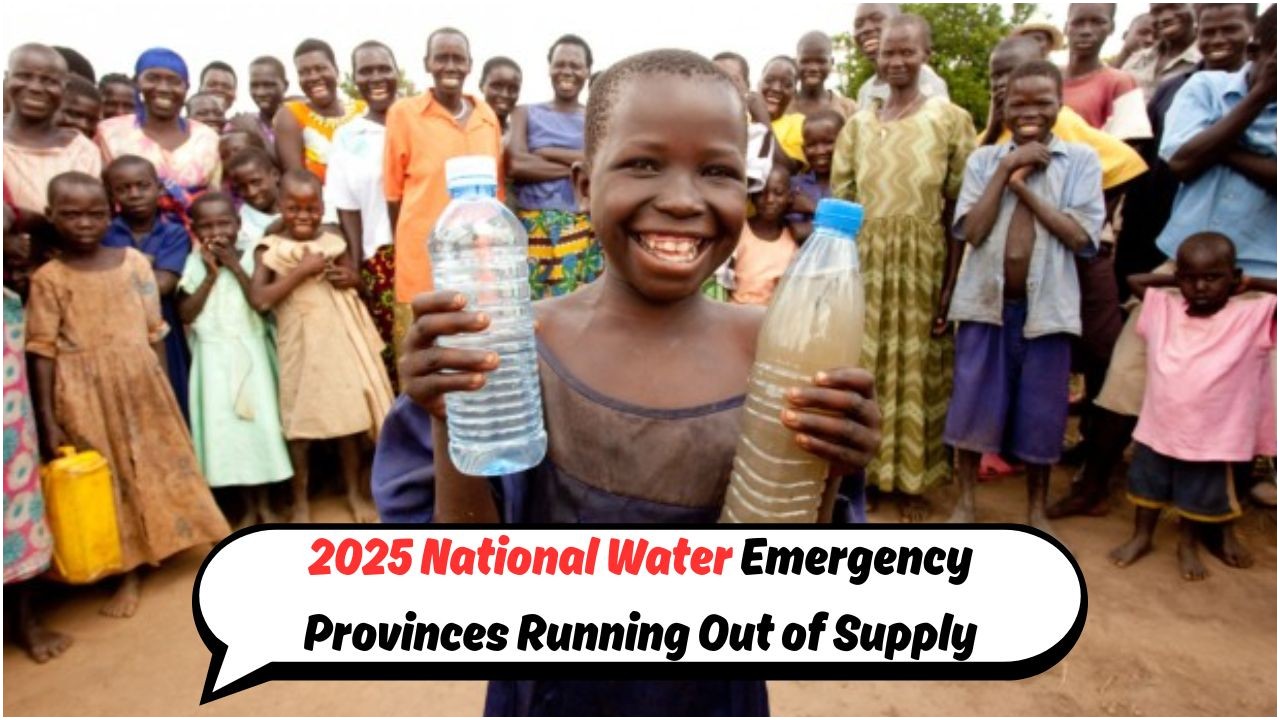South Africa’s 2025 Water Crisis: As 2025 looms, South Africa is facing an escalating water crisis that threatens to disrupt the lives of millions. The nation is grappling with severe water shortages in five key provinces, prompting the government to initiate emergency plans to mitigate the impact. This dire situation is not only affecting daily life but also posing significant challenges to agriculture, industry, and overall economic stability. With climate change exacerbating the situation, the urgency to find sustainable solutions has never been more critical. As the crisis unfolds, South Africans are bracing themselves for a future where water scarcity becomes an everyday reality, demanding innovative approaches and collective action to secure a reliable water supply for all.
Provinces Hit Hardest by the 2025 Water Shortages
South Africa’s water crisis is particularly acute in five provinces, each facing unique challenges due to varying geographical and climatic conditions. The Eastern Cape, known for its rural landscapes and agricultural activities, is experiencing a severe depletion in water reserves, affecting both urban and rural communities. In KwaZulu-Natal, water scarcity is compounded by aging infrastructure and rising demand from a growing population. The Free State, traditionally a farming powerhouse, is witnessing declining crop yields and livestock numbers as water becomes increasingly scarce. Meanwhile, the Northern Cape, already one of the driest regions, is seeing its arid conditions worsen, causing significant stress on local ecosystems. Lastly, the Western Cape, despite past investments in desalination and water reuse, continues to face challenges due to erratic weather patterns and prolonged droughts.
These provinces are at the forefront of the crisis, struggling to balance the needs of their residents with the demands of agriculture and industry. The situation is exacerbated by inadequate rainfall, over-reliance on dwindling groundwater sources, and the impacts of climate change, which include increased temperatures and changing precipitation patterns. As a result, local governments and communities are being forced to implement stringent water-saving measures and seek innovative solutions to ensure long-term water security.
Emergency Plans and Government Response to the Water Crisis
In response to the escalating water crisis, South African authorities have put emergency plans into motion to address the immediate needs of the affected provinces and prevent further deterioration. These plans involve a multi-faceted approach, including the deployment of mobile water treatment units, the construction of additional water storage facilities, and the fast-tracking of infrastructure upgrades. The government is also investing in new technologies that promote water efficiency, such as smart irrigation systems and advanced leak detection methods.
Public awareness campaigns are being rolled out to encourage water conservation practices among citizens, emphasizing the importance of every drop. Moreover, collaborations with international organizations and neighboring countries are being explored to share resources and expertise in managing water scarcity. The government is also prioritizing the development of alternative water sources, such as desalination plants and rainwater harvesting systems, to diversify the water supply portfolio and reduce dependence on traditional sources.
Despite these efforts, the complexity of the crisis requires long-term strategies and substantial investment. Policymakers are urged to adopt a more integrated approach to water management, considering factors such as population growth, environmental sustainability, and economic development. By fostering a culture of collaboration and innovation, South Africa aims to build a resilient water future that can withstand the challenges posed by climate change and resource limitations.
The Role of Technology in Mitigating South Africa’s Water Crisis
As South Africa battles its water crisis, technology is playing a pivotal role in mitigating the impact and providing sustainable solutions. Advances in water management technologies are helping to optimize the use and distribution of this precious resource. Smart metering systems are being deployed to monitor water usage in real-time, allowing for the early detection of leaks and the prevention of water wastage. These systems empower consumers to manage their consumption more effectively, fostering a culture of conservation.
In agriculture, precision farming techniques are being adopted to enhance water efficiency. This includes the use of drones and sensors to monitor soil moisture levels and optimize irrigation schedules, ensuring crops receive the right amount of water at the right time. Such innovations not only conserve water but also improve crop yields, supporting food security in the face of water scarcity.
Furthermore, the development of advanced desalination technologies is providing new opportunities to supplement traditional water supplies. These technologies are becoming more cost-effective and energy-efficient, making them viable options for regions with access to seawater. By harnessing the power of technology, South Africa can build a more resilient water infrastructure that adapts to changing conditions and secures a sustainable future for its citizens.
 Unlock R10,000 in Cash Support with the 2025 Youth Skills Grant – Hurry, Apply Before It's Too Late!
Unlock R10,000 in Cash Support with the 2025 Youth Skills Grant – Hurry, Apply Before It's Too Late!
Community Efforts and Local Initiatives in Water Conservation
Amidst the looming water crisis, communities across South Africa are stepping up with grassroots initiatives to conserve water and promote sustainable practices. Local organizations and community groups are playing a crucial role in raising awareness about the importance of water conservation and mobilizing citizens to take action. Educational workshops and outreach programs are being conducted to teach residents simple yet effective water-saving techniques, such as rainwater harvesting and greywater recycling.
In urban areas, community gardens are being established to promote local food production while minimizing water use. These gardens utilize innovative irrigation methods, such as drip and rain-fed systems, to maximize efficiency. Meanwhile, in rural regions, traditional knowledge and practices are being revived to sustainably manage natural water resources and protect local ecosystems.
The private sector is also contributing to the cause, with businesses implementing water-saving measures and supporting community projects. Many companies are investing in technologies and practices that reduce their water footprint, demonstrating a commitment to environmental responsibility. These collective efforts highlight the power of community collaboration and the importance of shared responsibility in addressing the water crisis. By working together, South Africans are paving the way for a more sustainable and water-secure future.






